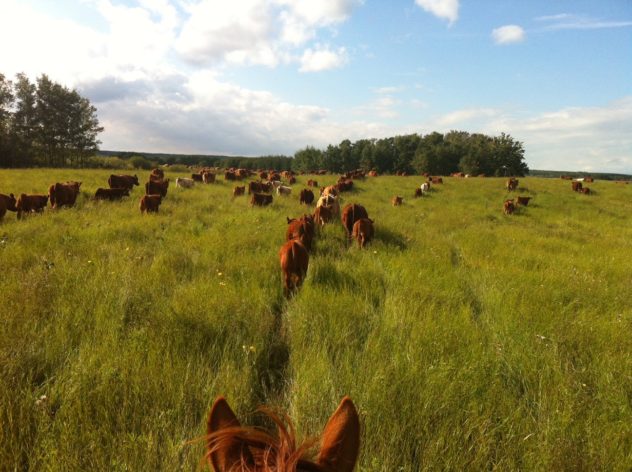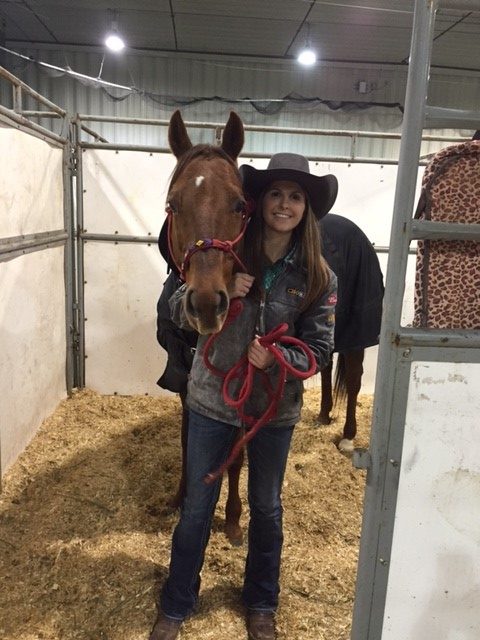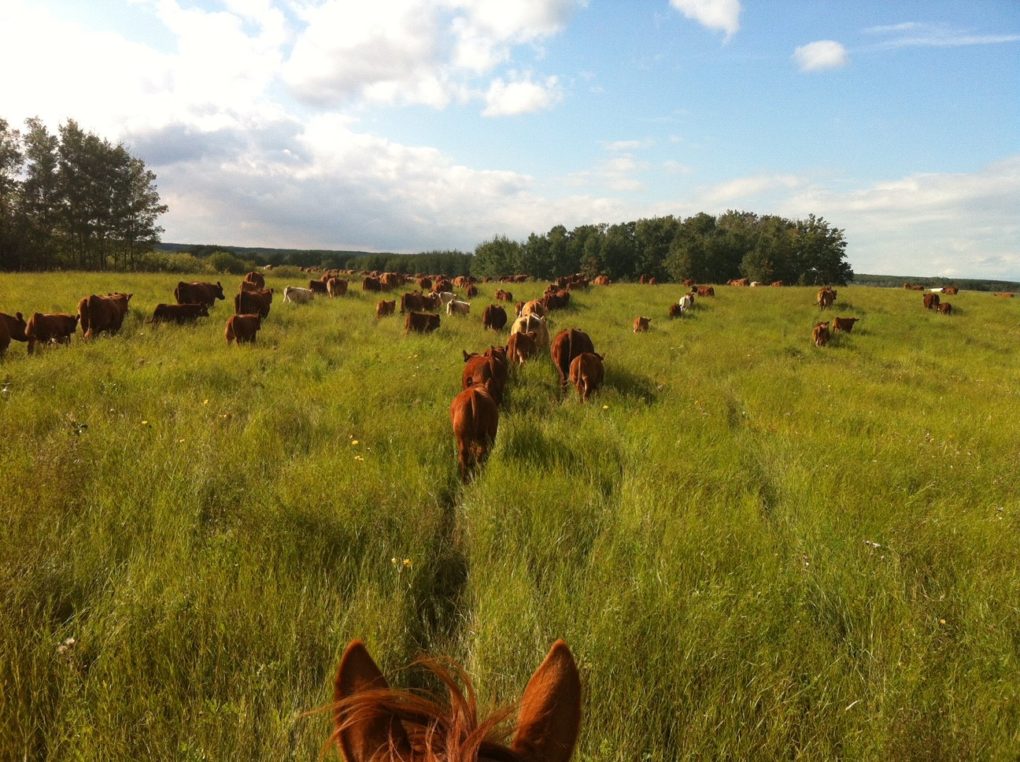Will Changing Animal Welfare Regulations Benefit Cattle and Producers?
By Laramie Slade, University of Saskatchewan student
Across Canada, consumers want to know the story behind the beef they eat. They want to know where it came from, how it was raised, and if it was raised humanely and with care. Consumers have every right to this information; especially since as beef producers we have nothing to hide. Every beef producer that I know treats their animals with the utmost care and respect and is happy to show sceptics just that. While welfare regulations without a doubt have a place in the beef industry, it’s important to producers that these regulations have the welfare of cattle in mind, and are based on scientific research.
Consumer Concern
Canadian consumer concerns include whether the animal was raised humanely and ethically. Despite what some critics say about beef producers, as beef producers we too want our consumers to know how our animals are cared for. October is Saskatchewan’s Agriculture Month in which to show consumers the truth behind their food, the campaign Our Food Has a Story was created. The campaign was to help remove uncertainties about the food or beef you purchase. Consumers should feel confident in the food they are buying, and it’s our job as producers to help with that.
Essentials of Animal Welfare: Profits and Pride
 Farm animal welfare is crucial to many. If producers aren’t producing healthy beef, they’ll struggle to put food on their own table. Healthy animals mean a healthier paycheck, and at the end of a day, this is a job. Owning cattle is an investment, and every investor (farmer and ranchers) wants to ensure a profit is achieved. Producers are full of pride, it’s more than just turning a profit. We’re helping to feed people. To do this successfully, we want people to know that we are taking all measures needed to keep our animals healthy and safe.
Farm animal welfare is crucial to many. If producers aren’t producing healthy beef, they’ll struggle to put food on their own table. Healthy animals mean a healthier paycheck, and at the end of a day, this is a job. Owning cattle is an investment, and every investor (farmer and ranchers) wants to ensure a profit is achieved. Producers are full of pride, it’s more than just turning a profit. We’re helping to feed people. To do this successfully, we want people to know that we are taking all measures needed to keep our animals healthy and safe.
Producers are regulated by the Code of Practice for the Care and Handling of Beef Cattle regarding animal health, transportation, feed and water. As producers within food supply chain, it is crucial that the Code of Practice be continuously reviewed and updated. However, it is absolutely vital that changes are made with animal welfare in mind, based on facts, not feelings. When it comes to animal transport, the current regulation allows the animal to be loaded on a livestock trailer for 48 hours. After that time the animal must be offloaded for a minimum of five hours and given food and water. To someone who is unfamiliar with the industry, this may seem like a long time. However, loading and unloading cattle cause more stress than transportation does. Producers do not want to cause more stress to an animal that it must endure for transport, as the welfare of the animal is most important. If the policy is to change on cattle transport, for the sake of the animals we should not let the perception of the general public influence the regulation. The science and animal welfare should come before the public’s opinion. Research on safe animal transportation is ongoing, but informing the general public on why we choose the practices we do is also mandatory to diminish any false information out there.
Professions before perception
Livestock producers in Canada catch a lot of grief over how the public’s perception of how we treat our animals. Yet it doesn’t slow us down, if anything, it drives us to do a better job. As harmful of false statements are to the beef industry, it pushes us to continue to tell the truth and produce the best beef we can. It’s very important to beef producers that their cattle are treated with care. From my experience, healthy animals gain more weight and therefore bring more money at the end of the year. It is not just about the money. It’s about feeling that sense of pride and satisfaction. When animals leave in the fall, we know our hard work has all paid off and we are sending off the best cattle we can produce. However, if regulations are to be changed to reflect what the public thinks is right and not what experts find to be the best means for care and safety for the animal, we cannot be sure we are putting the best product out there. As producers we don’t want to be cruel to our animals, so please don’t ask regulations to reflect your views which could be more harmful to the animals’ wellbeing.
 Laramie Slade
Laramie Slade
Laramie Slade has always had a passion for the Agriculture industry. She has played an active role in her family’s custom grazing operation for many years. Laramie’s hobby is barrel racing, where she enjoys competing at semi-professional and amateur rodeos across the Prairie Provinces with her younger sister. Currently, Laramie is in the final year of her Agribusiness Diploma from the University of Saskatchewan; she also holds a diploma in Animal Science from Lethbridge College. After University, Laramie looks forward to staying active in agriculture and promoting this industry.


